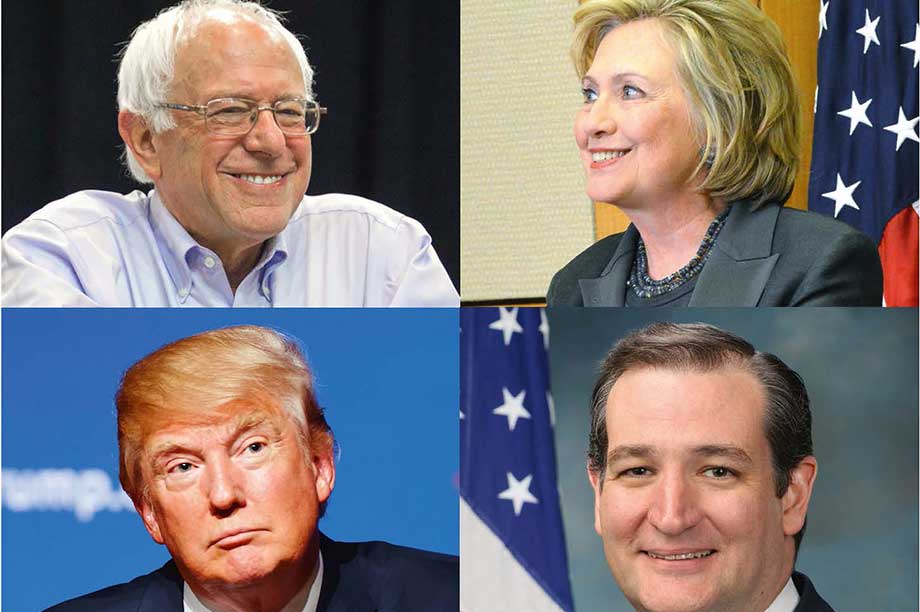Despite the recent passage of the five-year extension of the production tax credit (PTC), the outcome of November's US presidential elections could make a difference to wind power, given the climate scepticism of Republican candidates.
Even so, some industry leaders say wind power is such a predictable and cheap hedge against longer-term risk, it will easily weather the storm.
The two leading Democratic candidates, former Secretary of State Hillary Clinton and Vermont senator Bernie Saunders, say they would back a wide deployment of renewable energy and continue to push Barack Obama's aggressive climate policy, which includes the Clean Power Plan (CPP).
The CPP, announced by Obama in August last year, is expected to slash emissions by 32% below 2005 levels by 2030 It starts to take effect in about 2023. If implemented, by 2030 renewables would account for 28% of US generating capacity, up from 13% in 2014.
Republican opposition
Billionaire Republican candidate Donald Trump, famous for opposing wind energy near a golf course investment in Scotland, UK, has said he supports home-grown energy, but has not been specific except to express support for fracking and the Keystone XL oil pipeline, to criticise wind turbines as intrusive and to support the biofuel-friendly renewable fuels standard.
Trump has called climate change a hoax and said tackling it hurts US manufacturing.
Ted Cruz, his chief opponent (at the time of going to press), is an ultra-conservative who has said he will eliminate the Department of Energy, has questioned the science behind mainstream climate science, and says he would withdraw the US from December's United Nation COP21 global climate deal.
Even Senator Marco Rubio, a more centrist and business-friendly Republican candidate, describes the CPP as an "illegal mandate". (Indeed it is being opposed legally by about two dozen states.) Rubio has also described himself as a climate sceptic.
"There's a world of difference between the (Republican) field and Democratic field on renewables and clean energy," said Seth Stein of the League of Conservation Voters, a non-partisan environmental lobby group.
"These differences matter more than ever, because whoever steps into the White House in 2017 will choose whether to build upon or dismantle President Obama's historic legacy of combating climate change, including the creation of the (CPP), investment in renewable energy and negotiating the international climate agreement in Paris."
The Republicans and Democrats will officially select their candidate for the presidency at their party conventions in July.
'Nice to have'
Bruce Bailey, CEO of renewable-energy consultancy AWS Truepower, is not concerned about a push to rescind the PTC, which Congress recently voted to extend but phase out by year-end 2021. Bailey agrees that Obama's CPP could be rescinded or delayed.
Still, the impact would likely not be "major" he says, because of wind's momentum, including the PTC and states' renewable portfolio standards, which in populous California and New York will require 50% of electricity to come from renewables. But Bailey says: "It would be nice to have (the CPP) - every policy-driven incentive is nice to have."
Mike Skelly, a one-time Democratic candidate for Congress and president of Clean Line Energy, which develops transmission lines for renewable energy capacity, is also optimistic.
Even if there are delays in implementing the CPP, utilities will buy wind because it is economic and clean, he says.
And even if the next president is not in favour of the plan, everything could change with the 2020 election. Obama's successor president takes office in January 2017 for four years.
Public view
Polls show that the US public broadly favours renewable energy and the domestic jobs created, and is also worried about climate change. But likely voters are on average less keen than the Democratic candidates to pursue potentially costly climate measures.
The leading Republican candidates are also more conservative than the average voter from their party. Because of this dissonance between the candidates and voters, the issues had not been hotly debated on the campaign trail as of mid-January.
Iowa has a higher penetration of wind than any other US state and is the centre of the US ethanol industry. Its early voting is always seen as an indicator of how the presidential candidates may fare.
The vote is also looming in Colorado, a hotspot for wind-manufacturing jobs.

.png)



.png)









